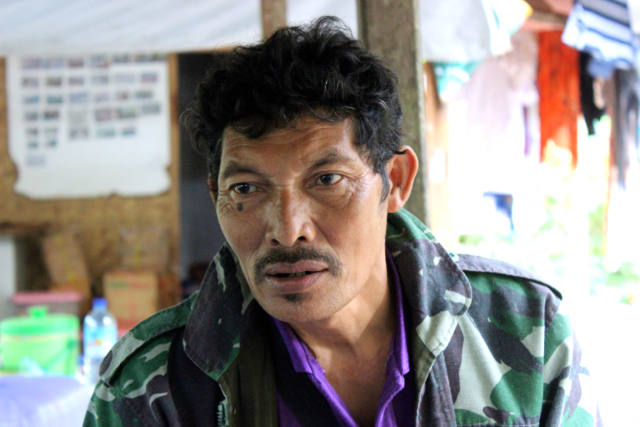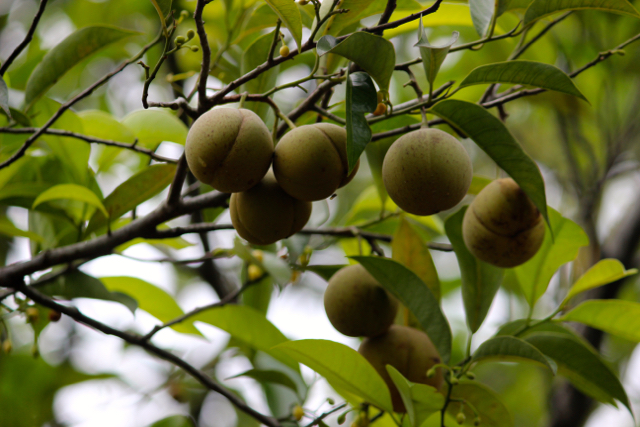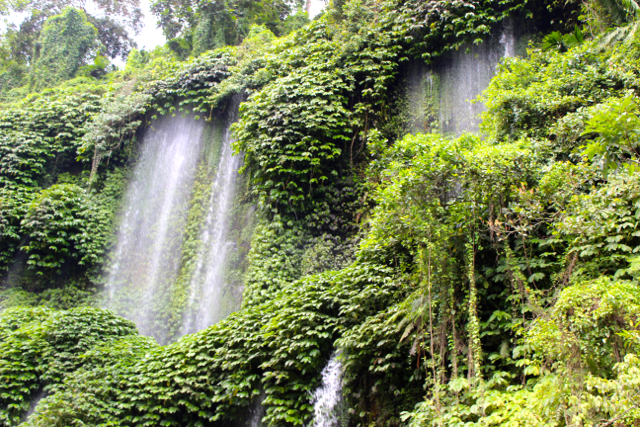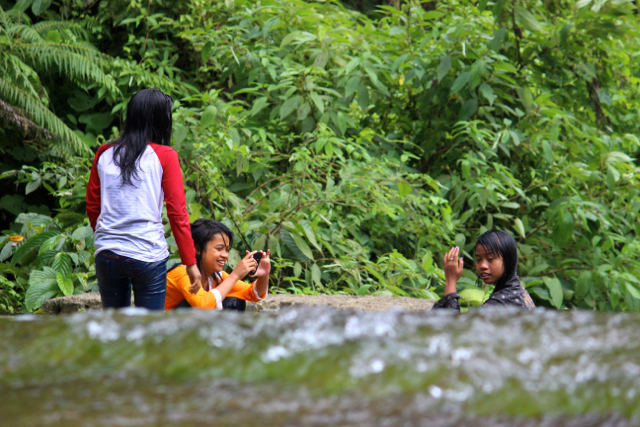- A village on the island of Lombok convinced local forestry officials to increase its management rights over its forests.
- The villagers have sometimes clashed with rangers from a nearby national park, but they have turned nutmeg and other crops into a major source of income.
- The villagers are trying to get similar regulations passed throughout Lombok.
What bugged Marwi back in 1995 wasn’t so much that villagers were barred from harvesting forest products in Gunung Rinjani National Park, a 41,000-hectare conservation zone anchored by the soaring 3,726-meter Mount Rinjani peak on the Indonesian island of Lombok.
What disturbed him was that the trees were dying, a result of illegal logging, despite their protected status.
“Villagers weren’t allowed to enter because it was a national park. But the trees weren’t even being protected. They were being destroyed,” said Marwi, secretary of Aik Berik village and chairman of the Central Lombok Rinjani Community Forum. With many in his village struggling to make ends meet, he felt they were getting a raw deal.
That conviction catalyzed a years-long, ultimately successful campaign to transfer management of forests from the Central Lombok Forestry Office to Aik Berik. Today, villagers have used those newfound rights to set up a thriving, sustainability-driven fruit trade, earning them recognition as a “fruit production center” by the government of Central Lombok district.
Today, some 15 women’s groups in the area annually process 8,000 kilograms of nutmeg, which has become the area’s cash crop.

Earning their rights
The story of Aik Berik’s struggle for forest rights dates back to a 1995 meeting between Marwi and local Forestry Office officials, when he made a bold pitch. “Give us management rights,” he told them, “and we will nurse these forests back to health. In exchange, we will harvest freely from what we plant.”
The officials were intrigued, but when the plan was conveyed to the Forestry Ministry in Jakarta, the capital, Marwi was told he’d have to prove his worth.
He wasted little time orchestrating a village-wide planting campaign of durian, mangosteen, nutmeg and avocado crops. As years went by, the crops flourished and officials were forced to take notice. The Forestry Ministry gave its long-awaited nod of approval in 2000, granting the village preliminary rights to a 1,042-hectare plot of forest.
Due to on-again, off-again tussles with national park rangers, who alleged locals were encroaching in the protected area, Aik Berik struggled to get those preliminary rights made permanent. That finally occurred in 2007, when 842 hectares of state forests were formally rezoned as “community forestland,” released into the care of village residents.

Nutmeg to the fore
Now that they had their forests, Marwi pushed locals to use them wisely, advising farmers to double down on the planting of fruit trees with high conservation value.
“I knew if we planted sengon or mahogany, they would be logged as soon as the trees matured. So, it was better for us to plant crops like mangosteen that would produce fruit and age slowly.”
Together with the local branch of the Indonesia Forum for the Environment (Walhi), an NGO, nutmeg trees (a flora endemic to the area but which had become harder and harder to find) became the tree of choice. “From the leaf to the fruit, nutmeg has a really high economic value,” explained Murdani, executive director of Walhi’s branch in West Nusa Tenggara province.
As the nutmeg trees matured, locals found creative ways of processing its different parts. In addition to selling the nutmeg, a seed found inside a cracked-open nutmeg fruit, with the help of Walhi, they began to process the fruit into syrup, preserves, a sticky rice fudge called dodol, and other sweets.
Sudiarti, Walhi’s women’s empowerment coordinator for West Nusa Tenggara, said even the shell of the nutmeg fruit could be sold for profit. “The shells can be turned into oil, and one kilogram can fetch 1 million rupiah ($70). The leaves, meanwhile, can be turned into tea and other parts be turned into seasoning,” she explained.
Murdani said even demand for nutmeg seedlings was on the rise.
“A half-meter seedling is going for 50,000-60,000 rupiah, which is more expensive than a durian tree. It could become a new business in the area,” he said.
Despite the successes, Marwi said more ought to be done to make the development sustainable, including guarding against monoculture agriculture and safeguarding crucial water sources. Under his direction, 16 hectares of the 842-hectare forest concession have been designated a special water-catchment area. An environmental protection agency has also been formed, with Marwi appointed director.
“We’re trying to get similar regulations passed throughout Lombok,” Marwi said, adding that his agency was currently working to ensure downstream villagers were equally responsible for preserving the river’s health.
With two waterfalls in the water catchment zone, Marwi’s next big dream is to promote the village as an ecotourism site. Already, he said, tourists were beginning to trickle in.


Follow Sapariah Saturi and Cory Rogers on Twitter: @ariesapariah @cm__rogers
CITATION:
Sapariah Saturi. “Desa Aik Berik, Hidup Warga dari Merawat Hutan.” Mongabay-Indonesia. 31 May 2015.













